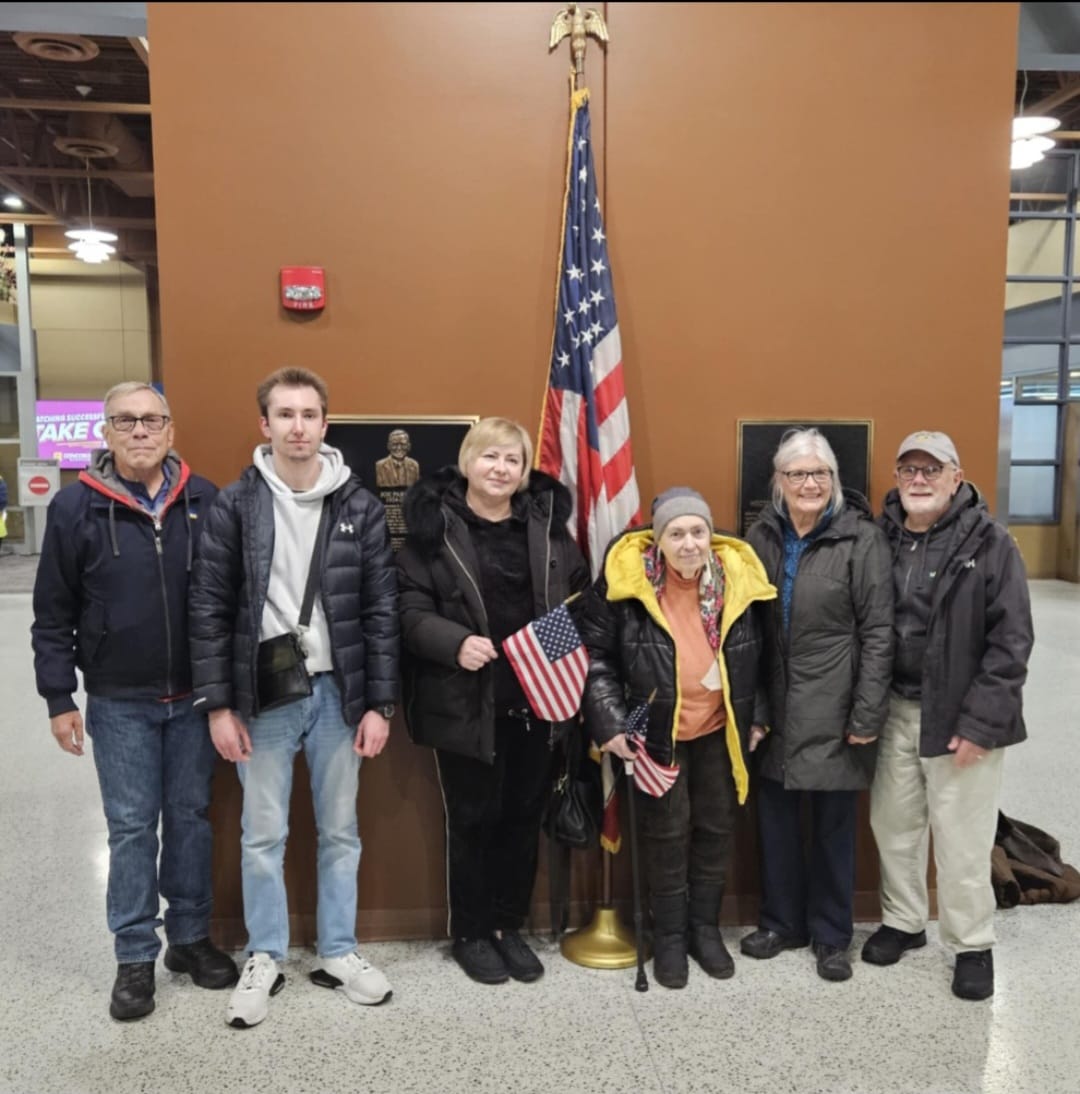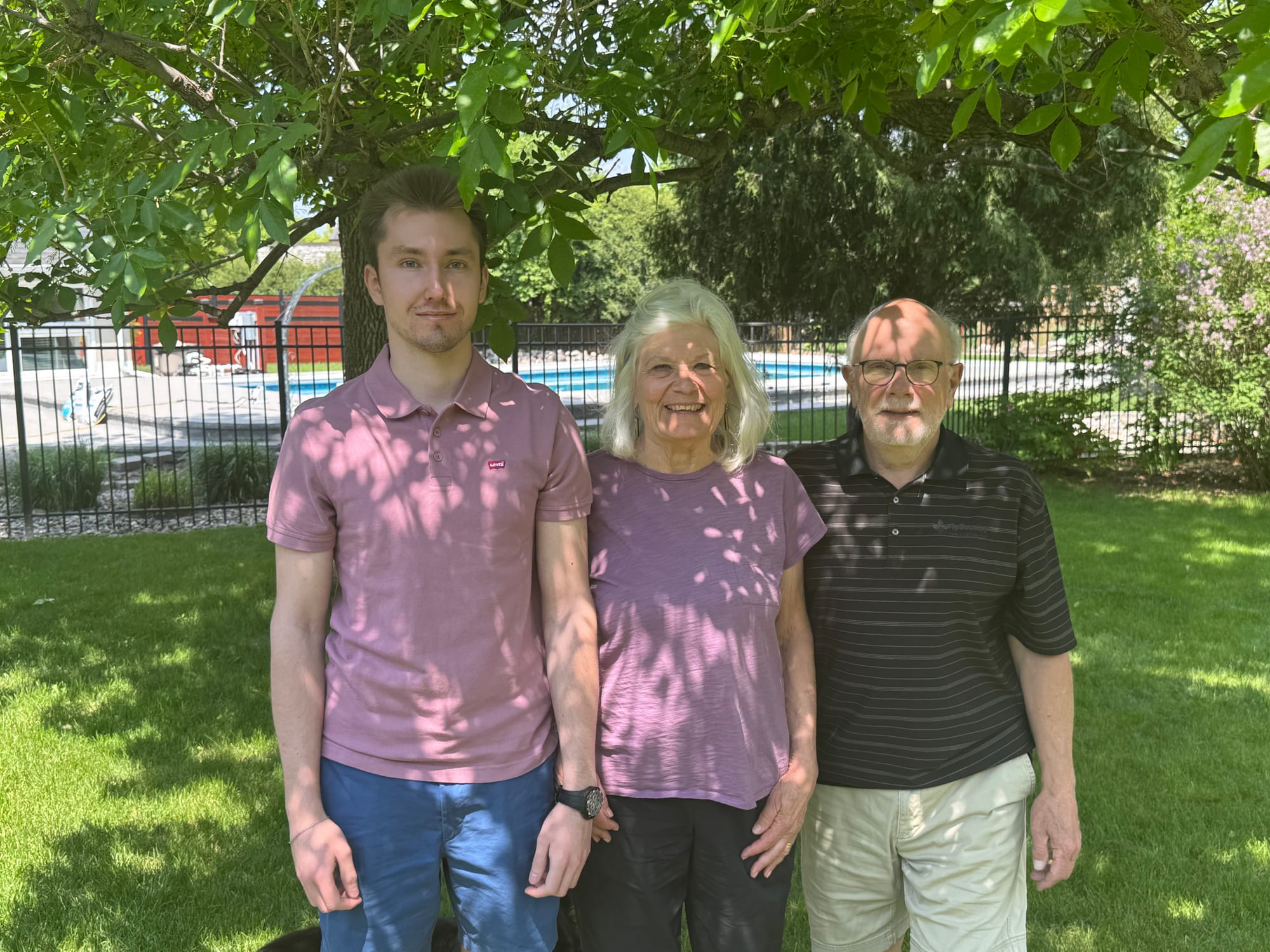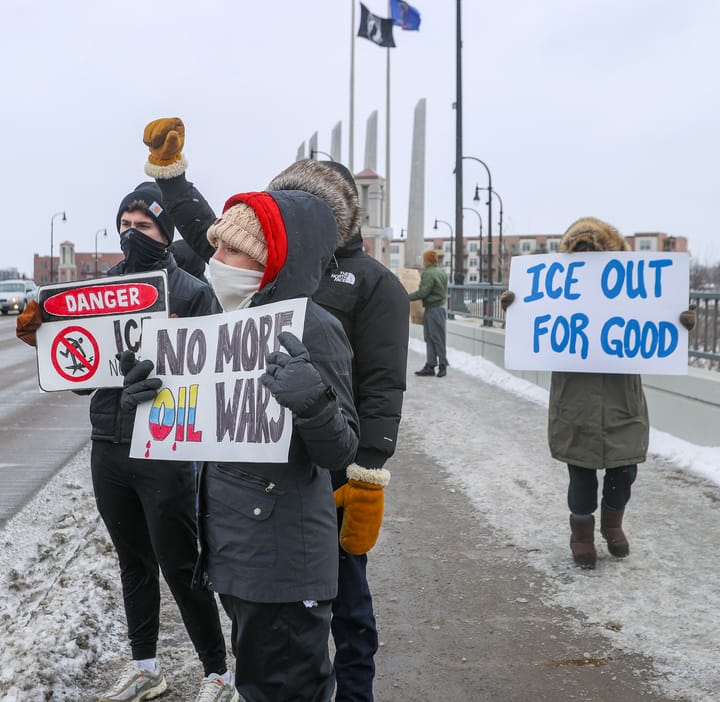Ukrainians face slow walk out the door as status expires
Unable to legally work, some fear a return to war zone

In mid-June Yaroslav Riazanov’s upended life will change once again.
The 27-year-old who drove trucks and worked construction around Fargo for the past two years as a Uniting for Ukraine (U4U) parolee will no longer be able to work.
Riazanov is fine. He’s in the prime of his life. He has no forthcoming surgery or anything that could make him physically incapable of working.
Only his paperwork will change.
Instead of being a two-year parolee, he’ll move to the limbo of temporary protected status.
While this allows him to stay in the U.S. for potentially another six months, it revokes his ability to work here legally.
Without work, his savings will dwindle, possibly forcing him to return to Ukraine.
Riazanov is one of the 600 to 800 Ukrainians who have settled in North Dakota as part of the U4U program now facing an uncertain future.
Since the program began in 2022, over 1,500 North Dakota sponsors submitted applications to help temporarily resettle Ukrainians here for periods of two-years while the war rages.
President Donald Trump and his administration paused all humanitarian parole programs in February for review.
That means those Ukrainians who pass the two-year mark can still apply to stay temporarily, but they can’t continue to work unless they get authorization.
Melania is one of the local Ukrainian parolees whose status has already expired. (Melania agreed to speak about her situation if her real name was not disclosed. NDNC verified her identity through her sponsors and others who know her.)
She, along with her husband and teenage son, have lived, worked, and studied in Fargo for the past two years, having fled the war in Ukraine under the same U4U program.
She worked as a cleaner; her husband was in construction. They’re hoping they can at least stay for their son to complete high school.
They have no backup plan and fear a return to Ukraine.
Kharkiv, in eastern Ukraine where they’re from, continues to be shelled daily.
Besides that, the whole country feels unsafe, she said. Russia launched one of its largest drone and ballistic missile attacks of the war across Ukraine just days before in late May.
Danylo Hoshko, 21, has another year before his status will expire, but has already become concerned.
He works at a pastry shop in Fargo, a very different situation from the one he’d imagined back home where he’d studied to be a sailor on the Sea of Azov and the Black Sea near his hometown of Mariupol.
Hoshko fled the war with his mother, who works as a cleaner at a nursing home, and his 76-year-old grandmother.
It was a long journey for the family to get to North Dakota from war-ravaged Mariupol.

His hometown witnessed some of the most intense fighting early in the war and has been occupied by Russian forces for nearly three years now.
There were torturous months when the war first started, where the family had to live in a crawl space below the house, often in sub-freezing temperatures, subsisting on instant noodles while bombs fell and killed neighbors around them.
They eventually made it out of occupied Mariupol, traversing minefields and over 50 Russian checkpoints, bouncing first to the capital of Kyiv, then to Lithuania via Poland, later to Germany and eventually to the U.S. and North Dakota.

Hoshko is considering applying for asylum for himself and his family, but hopes it won’t come to that.
For those Ukrainians past or approaching the two-year mark in their stay, they feel like they’re being slowly forced to leave.
They’ve seen the Trump administration’s offer of $1,000 for illegal immigrants to self-deport. They are uncertain whether this would apply to them, and whether it would even pay their way.
Melania’s family already submitted paperwork and paid around $1,000 per person to extend their stay and work authorization, but they have not received a decision.
“That’s a significant amount for a family, but we understood it was the cost of safety and stability,” she said.
Without work and health insurance obtained through employment, they’re living off modest savings until a decision on their status is made.
“We are hardworking people,” she said. “We are used to earning our way and not relying on government assistance. We want to pay taxes, rent housing, and raise our child in normal conditions, but right now, we are prevented from doing so.”
Every day more Ukrainians like Melania and her family lose their ability to legally work in the U.S. and eventually their ability to stay, she said.
“People were coming every two weeks, every month … anyone who was here the last two years will be expiring,” she said.
“It’s like you get to this dead end, then you give up, then you have to leave,” Melania said.
Employers could potentially step up and help apply for a status allowing them to work, but this can be a lengthy, expensive, bureaucratic process.
Some employers with larger staffs and a need for highly skilled workers can go this route and secure work authorization.
Others, with a handful of pastry chefs, construction workers, cleaners and drivers, are unwilling or unable to do this.
“If they pay, it's not a guarantee, and it's a lot of problem for the employer, because the employer should explain why they need me instead of an American,” Hoshko said.
“I’ve lost everything in my home city, in Mariupol,” Hoshko said. “I don’t have a place to go back to.”
Mary Ann and Gary Ouradnik, who sponsored the Hoshko family, said the uncertainty about their status in the future is troubling.
“I think that’s the part that’s so difficult, is how do you make any plans?” Mary Ann Ouradnik said.

For Riazanov there’s nothing to go back to either, he said.
The Rivne area he is from in Ukraine is dangerous, not only because of the war, but because of organized crime groups involved in illegal amber mining there.
Back in Ukraine, he faces imprisonment and, potentially, death, he said.
Riazanov was formerly a soldier from 2017 through 2019 but left Ukraine just before the war started in February 2022 and fled to Poland with his mother and sister.
A former superior officer tipped him and several of his fellow soldiers off about a likely Russian invasion later that month, saying they should leave before it was too late.
Riazanov decided to get his family and himself out of harm’s way.
“It’s safe here, I can walk easily, nobody wants to kill me,” he said. “In Ukraine, everyone wants to kill you. Every day I would see bandits with guns and shotguns. It’s a big deal.”
Riazanov expects life here will get very difficult once his work status expires.
“I need to pay for my car, my rent, my phone and need to send money back to my mom every month,” he said. “It’s big trouble and a lot of people are having this problem like me now.”
*Note: Due to translation and interpretation errors during the interview, the previous version of this story said Mr. Riazanov had deserted his unit. This is incorrect. He served in the Ukrainian armed forces from 2017-2019 and was honorably discharged. Shortly before the Russian invasion, a former superior officer warned him and other soldiers that Russia could invade but he was not currently with the unit at that time.
The North Dakota News Cooperative is a nonprofit news organization providing reliable and independent reporting on issues and events that impact the lives of North Dakotans. The organization increases the public’s access to quality journalism and advances news literacy across the state. For more information about NDNC or to make a charitable contribution, please visit newscoopnd.org. Send comments, suggestions or tips to michael@newscoopnd.org. Follow us on Twitter: https://twitter.com/NDNewsCoop.



